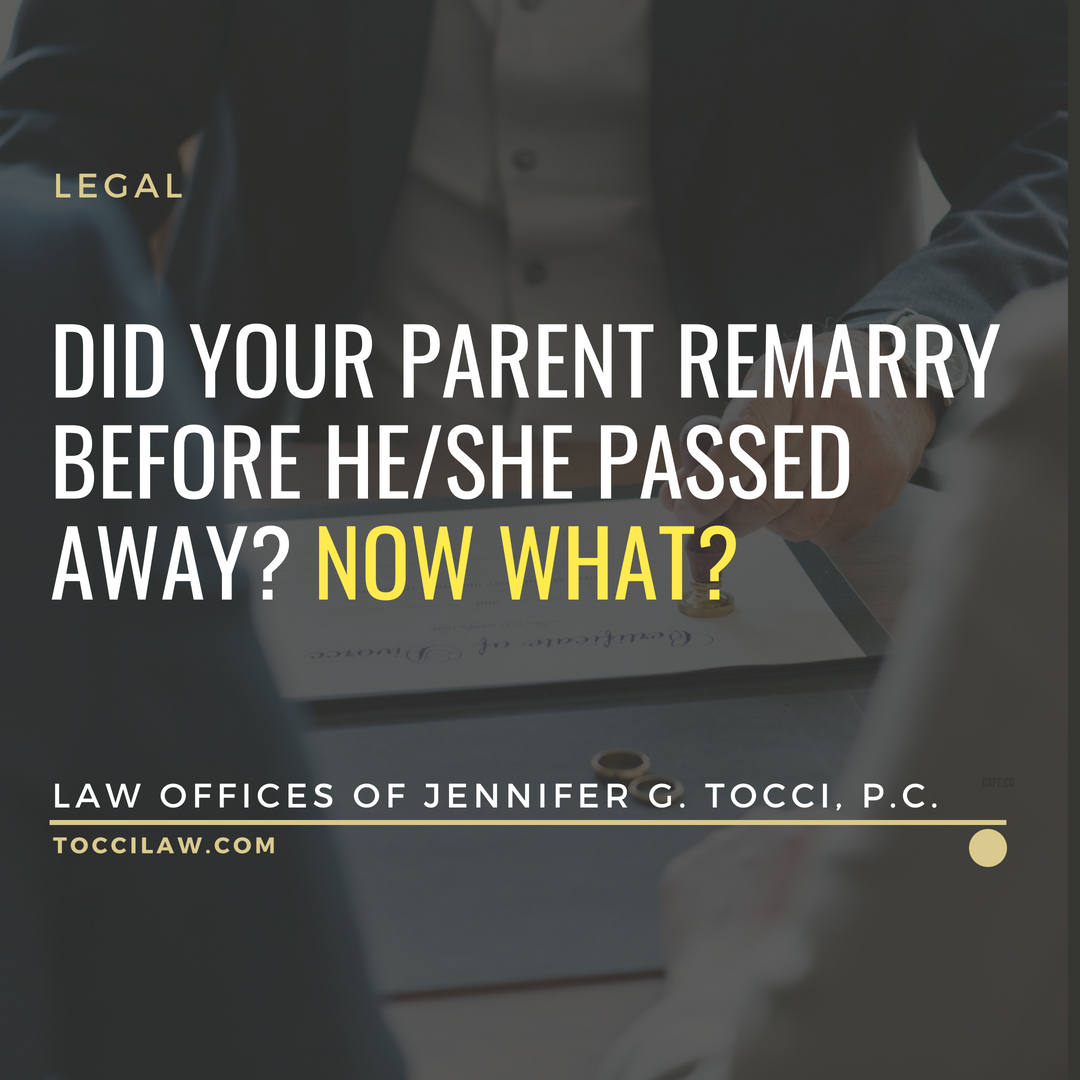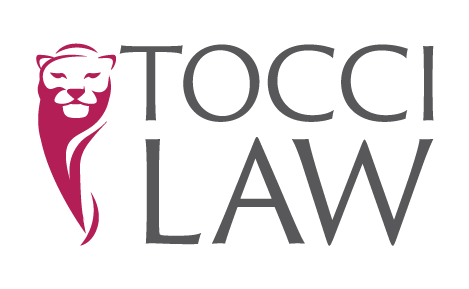
Your parent’s remarriage will impact your inheritance. While talking about who will inherit your parents’ assets is a difficult topic, you may wish to discuss your parents’ plan with them, and urge them to make a Will, to avoid potential fights and hurt feelings around their assets after they pass. Disputes between children and their stepparent can be intense and adversarial when the children learn that they will not be inheriting all (or in some cases, any) of their parent’s property. And while your parents probably aren’t considering what will happen to your inheritance when they pass, remarriage can have a devastating effect on family assets. What happens to your parent’s property when he/she gets remarried and then passes away? How does it affect your inheritance?
Remarried without a Will:
In New York State, if your parent dies and he/she is not married and did not leave behind a Will, his/her children will inherit the estate equally. That means, you and your siblings who also have the deceased parent as their parent will share everything in the same amounts. However, if your parent remarries and then passes away without a Will, the children are not entitled to all of their parent’s estate. Instead, if your parent passes first without a Will, your stepparent will be entitled to receive the first $50,000 and one-half (1/2) of the remainder of your parent’s estate. This means that you and your siblings could be splitting what is left of your parent’s estate, after $50,000 is deducted, and another 1/2 is given to your stepparent.
Also, this equation only applies to estate assets, meaning assets that were solely under the ownership of your individual parent. Jointly owned property between the spouses may not be considered estate property, and all or part of that asset could transfer directly to your stepparent by law. Life insurance proceeds are often not estate assets and therefore pass to a named beneficiary. If your parent named their spouse on their policy, you are not entitled to receive the funds from the policy. Where your parent fails to name a beneficiary, the funds would be considered part of your parent’s estate. Then your stepparent will receive $50,000 plus one-half of the remaining estate assets.
If your parent and stepparent lived in a home together, even where your parent purchased the home prior to the marriage, under certain circumstances, it could be automatically under the sole ownership of your stepparent upon your parent’s death. This would mean the house is not an estate asset, making you and your siblings ineligible to inherit it. Cars and assets purchased by your parent but placed in the stepparent’s name or used exclusively throughout their relationship could be passed solely to your stepparent.
With a Will:
Even with proper estate planning, your parent cannot totally disinherit your stepparent. Therefore, even if your parent makes a valid Will leaving everything to his/her children, your stepparent will still be eligible to inherit a portion of your parent’s estate under New York State Law. At a minimum, your stepparent is eligible to inherit one-third (1/3) of your parent’s estate, even where your parent wishes to leave his/her spouse nothing.
Your parent may create a Will that directs his/her entire estate to be left to his/her spouse. Property that passes to your stepparent via your parent’s Will becomes his/her property. Additionally, property that passes to your stepparent without a Will becomes his/her property. Therefore, if your stepparent does not make legal plans for you to inherit his/her property, you are not entitled to inherit any of it, even if your stepparent originally inherited that property from your parent. [Sidebar: If your stepparent does not make legal plans for your to inherit his/her property, your are not entitled to inherit any of it, even if your stepparent originally inherited that property from your parent, who inherited it from your other parent!]
Estate planning can help direct where assets may go according the wishes of your parent, instead of a situation he/she did not intend. Depending on the type of assets and how your parent wishes to devise them, your parent may be able to accomplish his/her goal with tools such as Wills, Powers of Attorney, trusts, gifts, transfers, joint ownership and beneficiary designations, etc., or a combination of these.
If your parents are considering remarriage or are already remarried, it is important for them to create an estate plan or update an existing plan to identify his/her assets, and specify how he/she wants his/her assets to be passed. The skilled attorneys at the Law Offices of Jennifer G. Tocci, P.C., are available to further explain the steps of the estate planning process and will help you and your parents put a plan in place that reflects your wishes and protects your assets. For more information or to schedule a consultation, contact our office at (631) 343-7676.
Attorney Advertising. This blog post is designed for general information only. The information presented at this site should not be construed to be neither formal legal advice nor the formation of a lawyer-client relationship. Prior results do not guarantee a similar outcome. New York State only.








